I was recently asked to survey a large Travertine tile installation at a 300-year-old thatched cottage in Maidstone. The Travertine floor was installed throughout the downstairs including the kitchen, dining room and utility room.
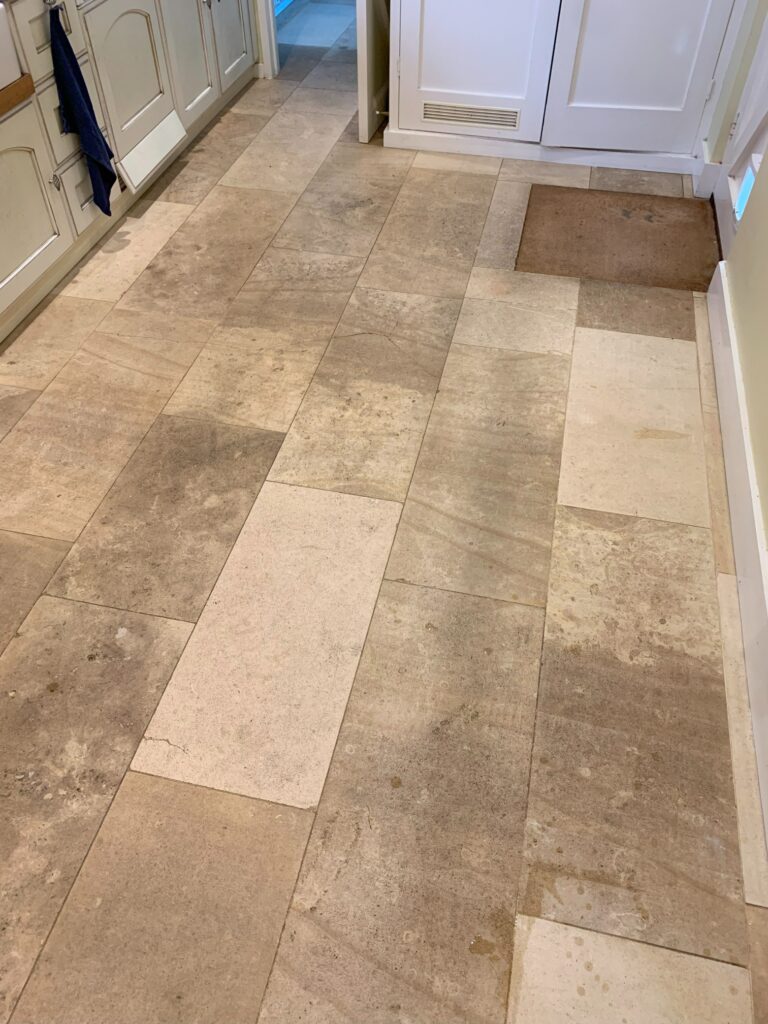
The stone floor had not been sealed in years and the previous sealer had now worn off with use leading to accumulated ground-in dirt. They were also concerned about numerous cracks that had appeared in the tiles, presumably from the underfloor heating.
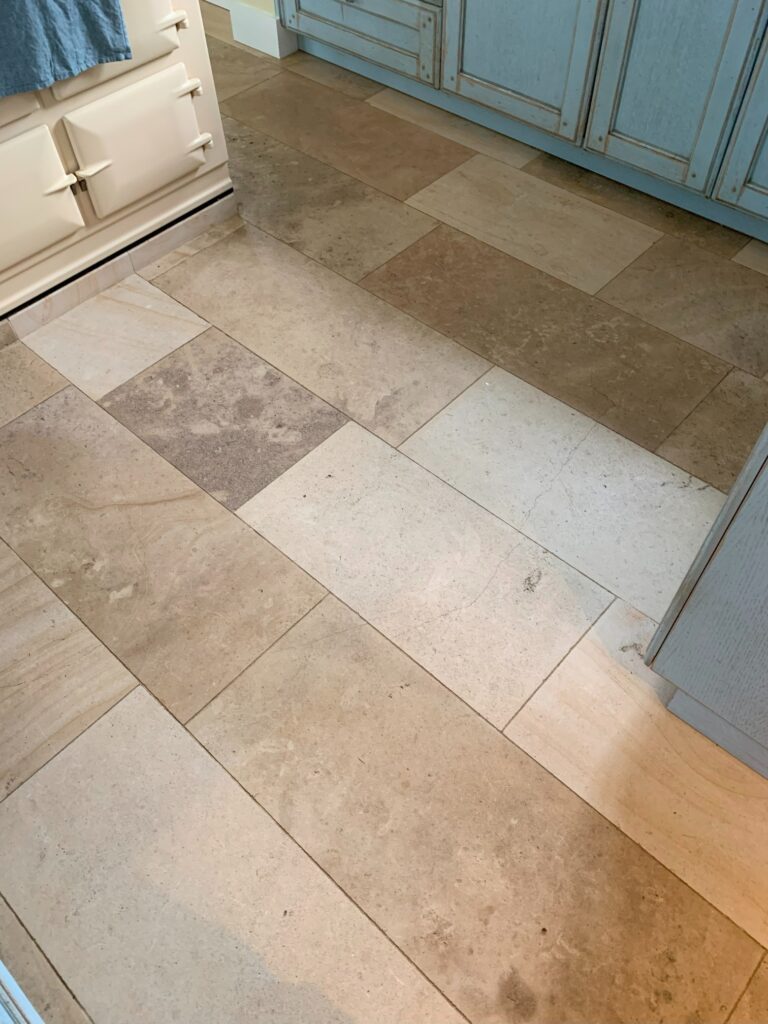 |
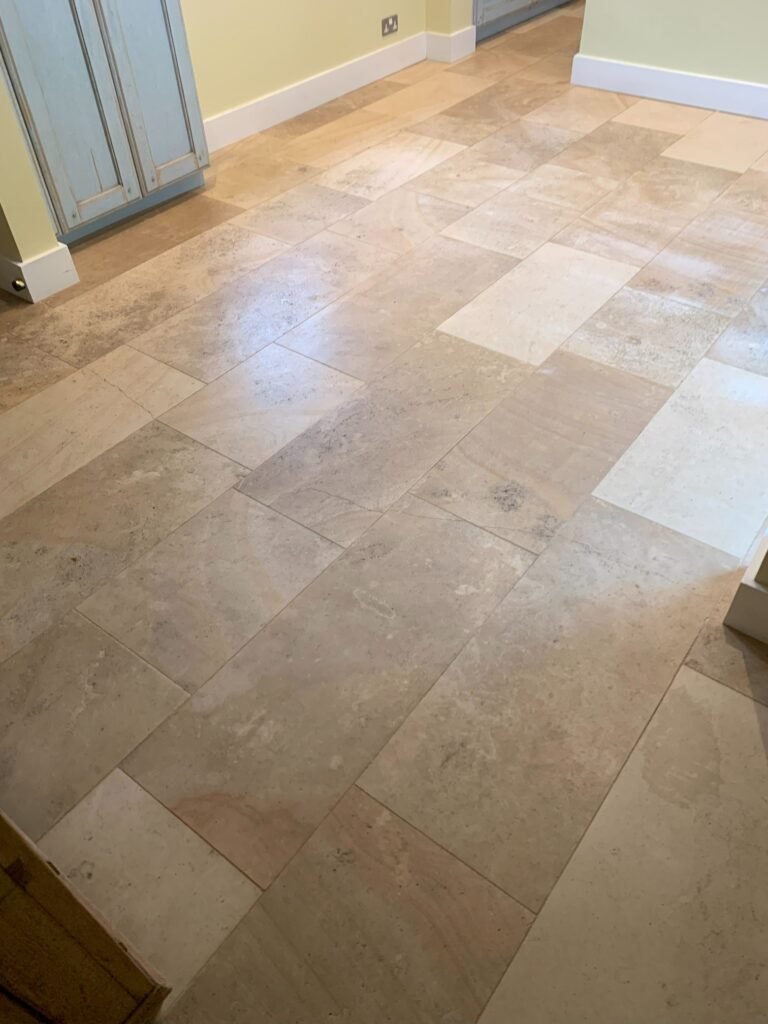 |
Travertine is a type of limestone that is acid sensitive and is naturally ‘holey’ or pitted. These pits are usually filled by the manufacturer but this can come loose and more holes can develop over time especially if you use an acidic bleach-based cleaning product.
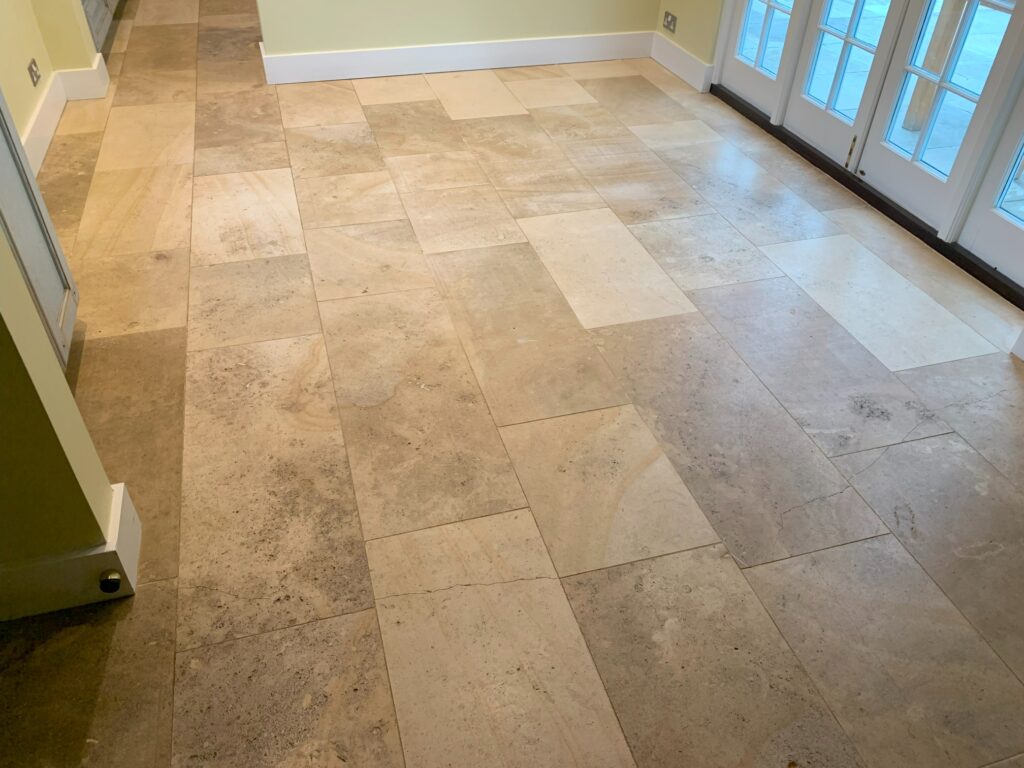
I performed a survey and worked out a renovation plan and quote. Happy with the quote we agreed a date for the work to start.
Filling and Cleaning Travertine Floors in Maidstone
The first job was to clean the cracks and holes in the Travertine before they could be repaired with a filler. This was done with a rotary floor machine fitted with a carbide brush in conjunction with water and Tile Doctor Pro-Clean which is an effect alkaline tile and grout cleaner. The work was performed in stages and the resultant dirty water was removed with a wet vacuum as we worked.
The floor was then inspected and the grout lines, cracks and larger holes were individually scrubbed by hand with a stronger Pro-Clean solution. Interestingly the grout lines cleaned up well to reveal they were a Jasmine colour that wasn’t evident before.
A heat gun was then used to dry the cracks and holes before applying a specialist stone resin sold for exactly this purpose. Once dry it was then sanded down so the filler was flush with the surface of the Travertine.
Next, a set of diamond burnishing pads were applied to the stone floor with using water for lubrication. There are four pads in the set with grits from 400 to 3000, each diamond pad is fitted to the buffer in turn. The pads are slowly passed over each Travertine tiles, first lengthways and then widthways ensuring a good and consistent cut. The resultant slurry is then extracted as before with the wet vacuum. Each successive pad had a finer grit of diamond which closes the pores of the stone and starts to put the natural sheen back.
A final mop and then we left for the day to allow the tiles to dry out to be sealed the next day.
h2>Sealing Travertine Tiled Floors in Maidstone
Returning the next day the first task was to check the moisture readings of the floor using a damp meter. The readings were good and it confirmed the floor was dry and ready for sealing. This check is really important as applying a sealer to a damp floor would impact its ability to cure and result in it looking patchy.
Happy with the readings from the moisture meter the floor was sealed with two coats of Tile Doctor’s Ultra Seal a natural look, impregnator. The sealer soaks into the pores of the stone protecting it from within and without altering the natural appearance of the honed stone.
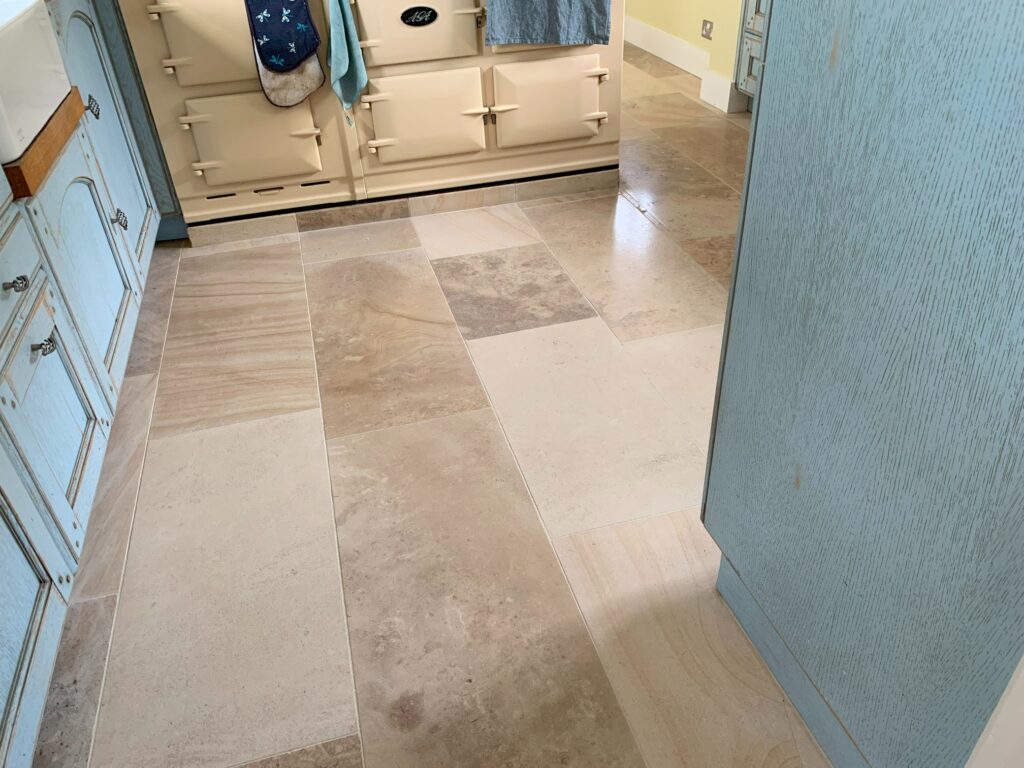 |
 |
A final polish with a fine 3000-grit diamond pad left the floors with an attractive reflective sheen and a happy customer!
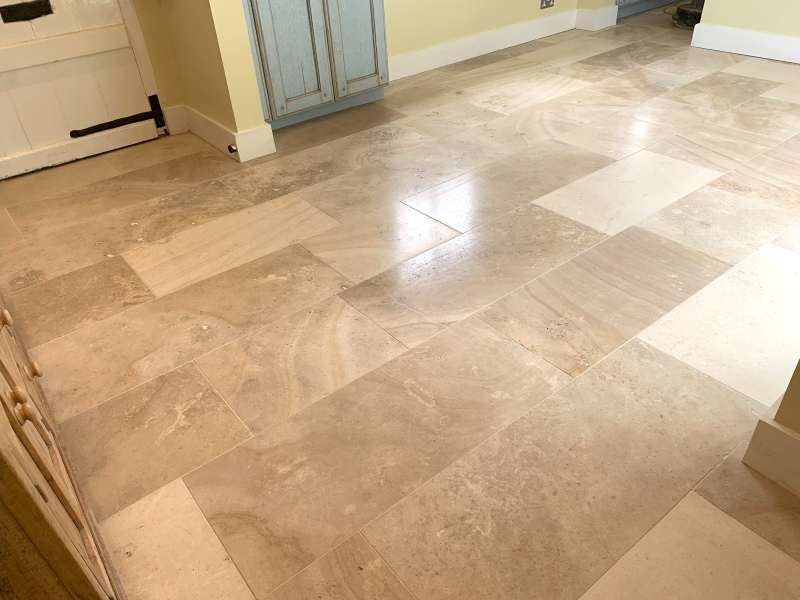
Before leaving I took time to discuss aftercare cleaning which for a polished stone floor like this, I recommend the use of Tile Doctor Stone Soap which is a gentle cleaning product that won’t impact the sealer and will maintain the patina.
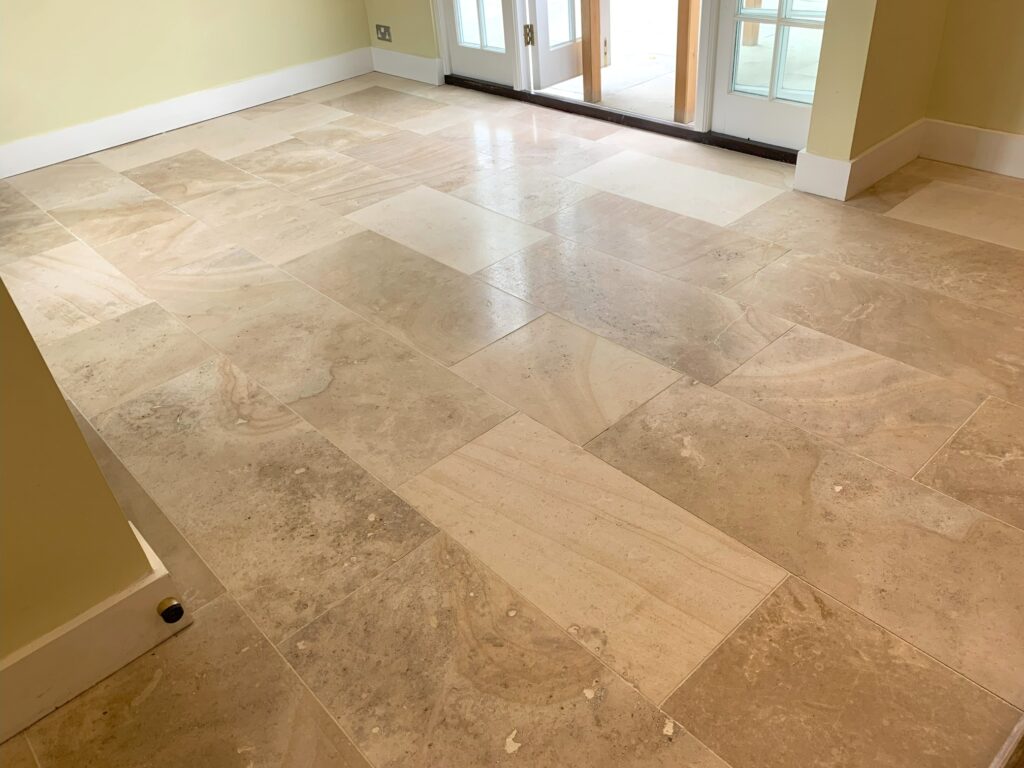
Source: Travertine Floor Tile Filling and Polishing in Maidstone Kent
Tile Doctors operate throughout the UK and are able to help resolve any problem you have with your Tile, Stone or Grout, Internal or External, Residential or Commercial. Call us today on 0345 512 0122 and ask for help with your problem, large or small.